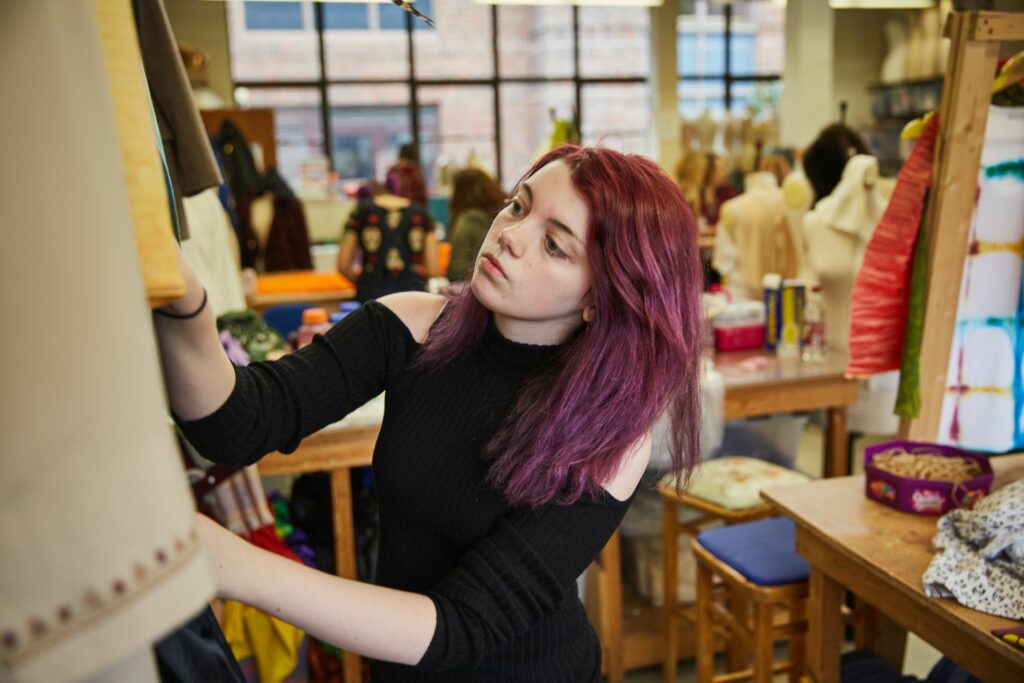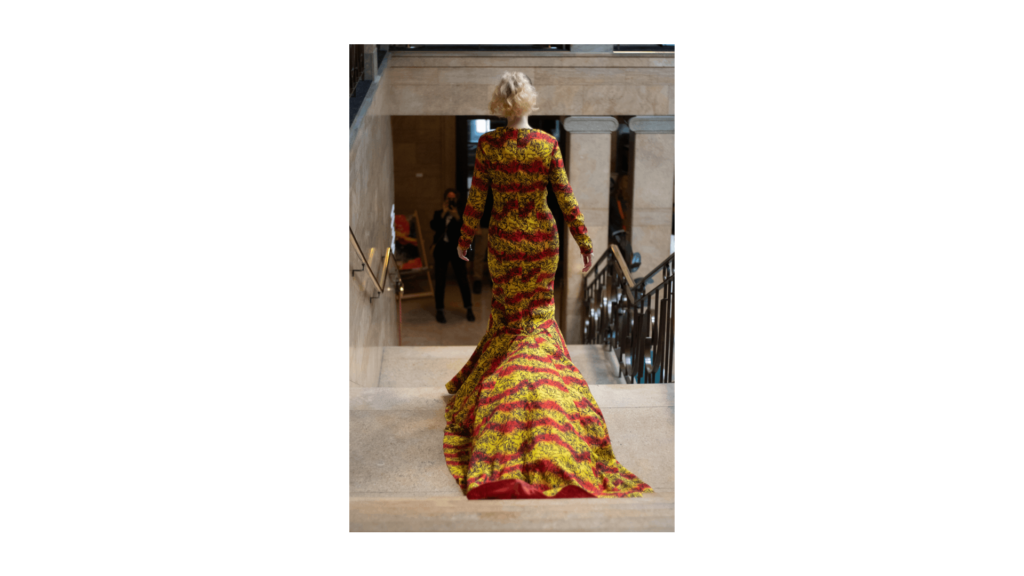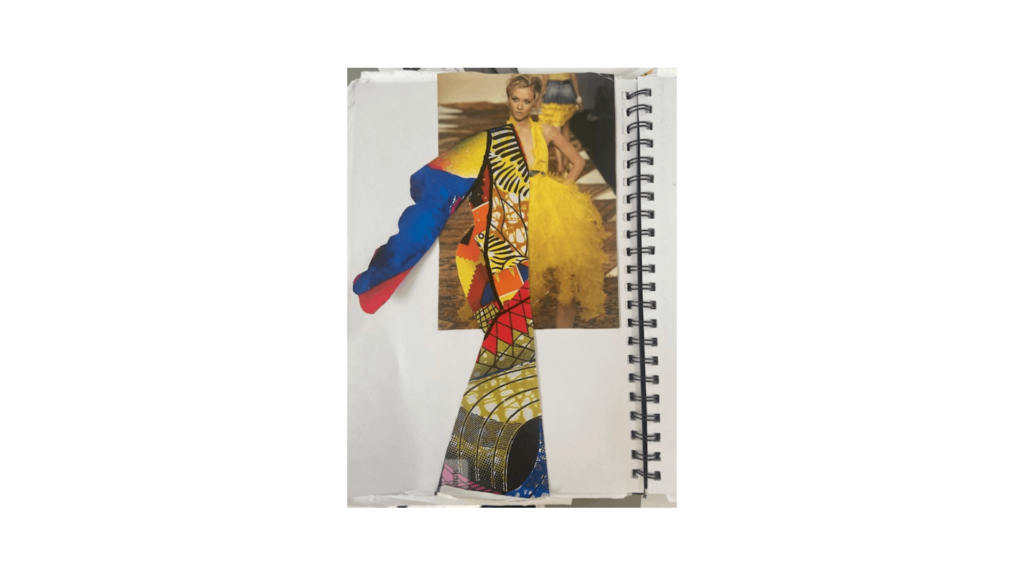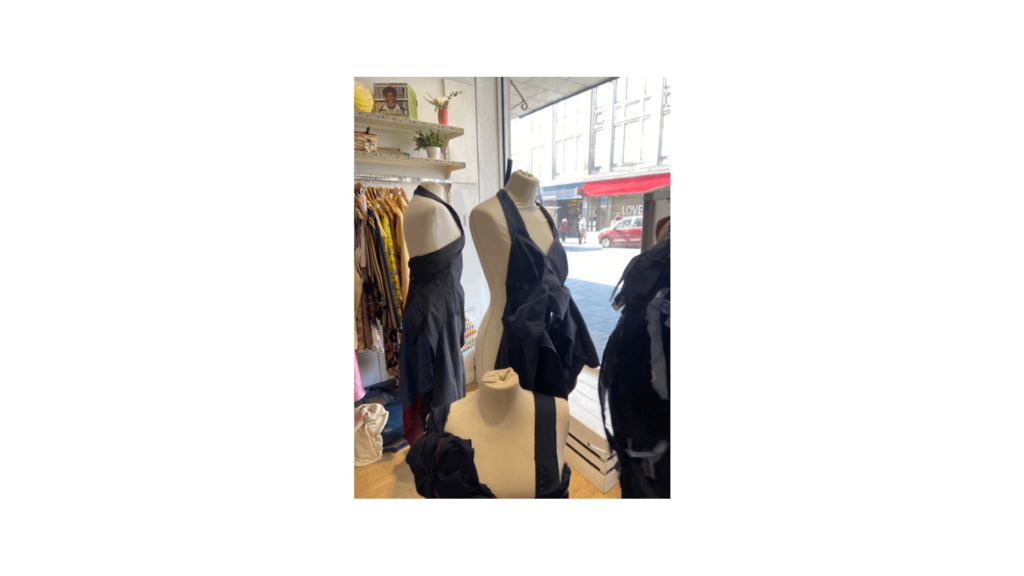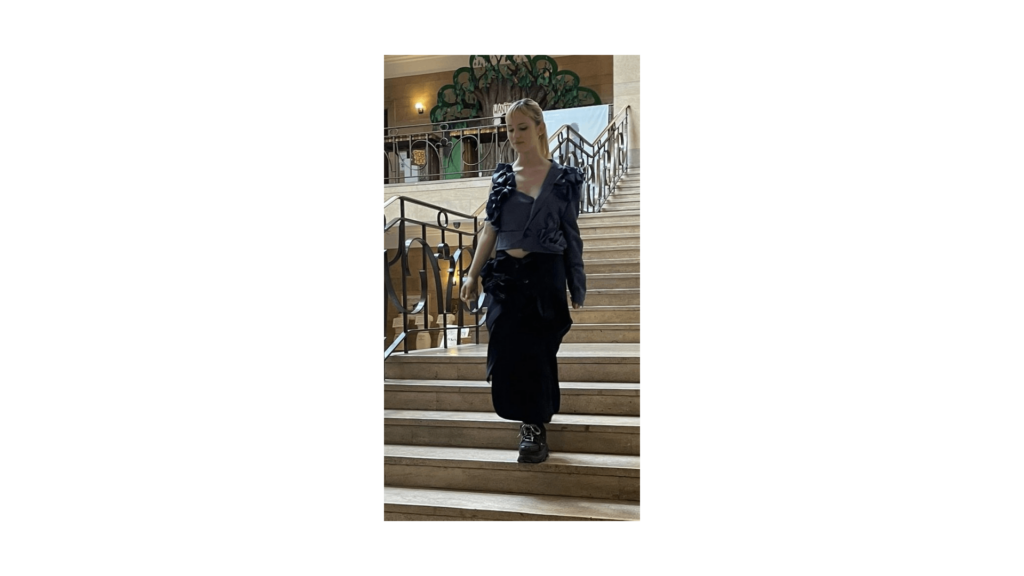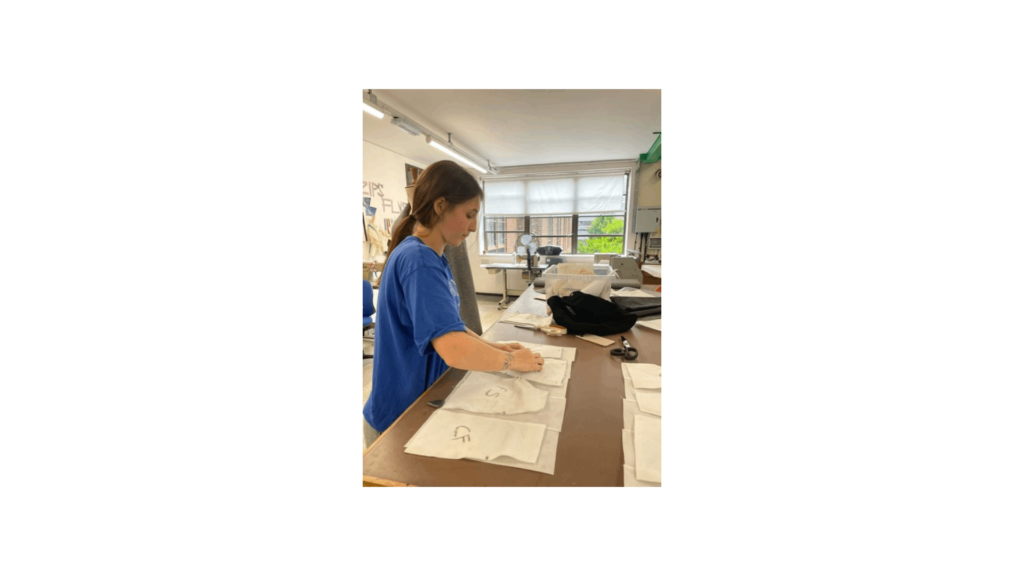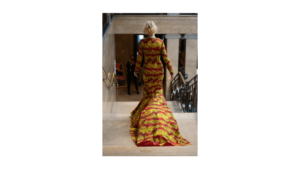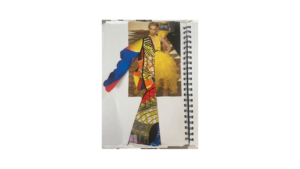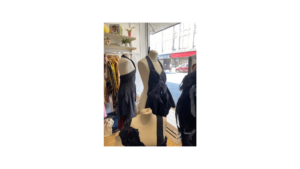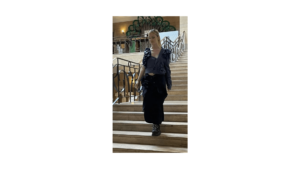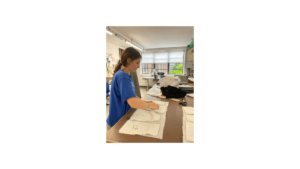This course has been devised in response to industry and student-led demand for practical training in makeup and hairdressing techniques for theatre, film, TV, fashion, festival, carnival and entertainment arenas.

COURSE OVERVIEW
Find your flair with our degree in fashion design.
On this course, you’ll explore how to make responsible choices for sustainable fashion while developing the creative and technical skills needed to succeed in the fashion industry.
You’;ll learn essential skills such as illustration, design, pattern cutting, sewing, garment making, and printed textiles. From 2D and 3D techniques, you’;ll delve into creative pattern cutting, garment construction, tailoring, and textile printing. You’ll also become proficient in using CAD (Computer-Aided Design) to develop your ideas, build your portfolio, and create professional presentations.
The course emphasises slow fashion, focusing on sustainable practices such as using ethical fabrics, sourcing end-of-roll materials to reduce textile waste, and designing made-to-measure garments that ensure longevity and emotional connection. You’;ll also gain experience working with innovative materials like cactus-based vegan leather, supported by industry collaborations with brands such as Desserto in Italy, in partnership with PETA UK.
Throughout the degree, you’;ll take part in live industry briefs and exciting design projects, preparing you for your final year. In your last year, you’;ll create a full collection of fashion pieces to demonstrate your skills and prepare for a career in the fashion industry.
The key features of the course include:
- Learn essential skills including illustration, design, pattern cutting, sewing, garment making, and printed textiles.
- Explore 2D and 3D techniques such as creative pattern cutting, garment construction, tailoring, and textile printing.
- Produce a full fashion collection in your final year to showcase your creativity and skills.
- This degree is validated by the University of the Arts London (UAL) and offers a strong industry focus, equipping you for a successful career in sustainable fashion design.
You’;ll have access to state-of-the-art facilities, including:
- Studios equipped with industry-standard machinery, specialist needles, and tools for working with a wide range of fabrics, including alternative materials.
- Design, Computer, and Textile Studios: Cutting-edge spaces for both creative and technical work.
- Exhibition Spaces: Providing opportunities to showcase your work in regular displays and events.
- Access to the latest CAD software for fashion design and portfolio development.
- Open access to campus-wide facilities, including a textile print room, laser cutter, 3D craft workshop, pattern cutting tables, sewing workshop and photo studios
Module Outline:
This course is designed to provide you with a comprehensive understanding of both the technical and creative aspects of fashion design. Throughout your studies, you will engage with a range of modules that will develop your skills and inspire your creativity. Here’;s a breakdown of the modules you’;ll explore during your time on the course:
Level 4 (Year One) –
- Fashion and Textiles Techniques and Processes (20 Credits)
- Research and Design (20 Credits)
- Cultural and Contextual Studies (20 Credits)
- Creative 2D Practice (20 Credits)
- Creative 3D Realisation (20 Credits)
- Sustainable Practice (20 Credits)
Level 5 (Year Two) –
- Bespoke Tailoring -; Emotionally Durable Design (40 Credits)
- Design for Industry (40 Credits)
- USP and Self Branding (20 Credits)
- Advanced Cultural and Contextual Studies (20 Credits)
Level 6 (Year Three) –
- Final Collection (60 Credits)
- Portfolio (20 Credits)
- Career Planning (20 Credits)
- Creative and Critical Research Project (20 Credits)
Collaboration is a key element of our Fashion Design BA (Hons) at Northbrook College. You’;ll have the chance to work with students from other creative disciplines on exciting projects, whether through set briefs or your own initiatives. This experience mirrors the collaborative nature of the fashion industry, preparing you for a successful career in this dynamic field.
FURTHER INFORMATION
- A relevant A-Level qualification, or
- A Level 3 Extended Diploma
- Relevant academic or work experience
- A strong, compelling personal statement
- An exceptional portfolio and interview
- Fashion designer
- Freelance designer
- Fashion business owner
- Trend forecaster
- Stylist
- Design consultant
- Fashion illustrator
- Pattern cutter
- Fashion marketing
- Retail, merchandising and buying
- Practical and creative studio-based workshops to refine your skills
- Group discussions to exchange ideas and insights
- Lectures and seminars to explore concepts and techniques
- Small group study to collaborate and learn from others
- Independent study to deepen your knowledge and creativity
- Field trips are an exciting part of the course, offering you the chance to gain real-world insight into the fashion industry
- Presentations (of practical work)
- Journals
- Research proposal
- Sketchbooks/drawings
- Written Assignments
- Student Loan
- Instalment Payment Plan
- Company Sponsorship
- Textbooks: Essential texts are available in the college libraries, but you may wish to purchase personal copies for convenience.
- Computer Equipment: While on-campus computers are available, having a personal laptop or tablet may offer greater flexibility for off-site study.
- Printing and Photocopying: Most coursework is submitted online, but some assignments may require printed submissions, optional binding, or other presentation materials.
- Materials: Creative courses often require specific art materials or equipment. A detailed materials list will be provided upon enrolment.
- Field Trips: Certain courses may include optional study visits or field trips to enrich learning experiences.
- External Shows and Exhibitions: Opportunities to participate in external exhibitions or shows may involve additional preparation, materials, or travel expenses.

